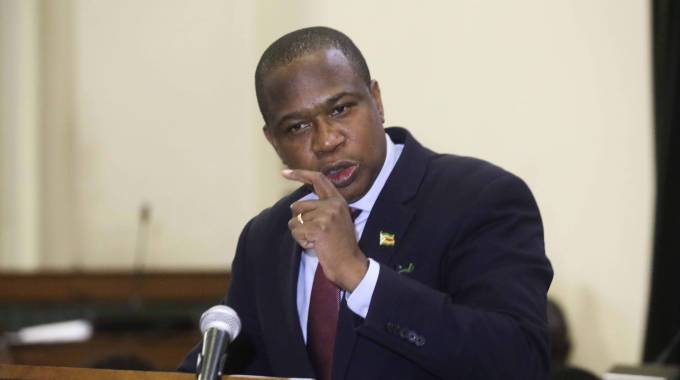
The Sunday Mail

Tawanda Musarurwa
All things being equal, Government’s austerity measures should be coming to an end next year, with the next step being a focus on consolidation as recently hinted by Finance and Economic Development Minister Professor Mthuli Ncube.
Zimbabwe’s austerity measures are being implemented under the Transitional Stabilisation Programme (TSP), running from October 2018 to December 2020 to deal with the budget deficit and unacceptably high debt levels.
The acts of deficit-cutting, reduced spending, and slashed public services are largely viewed as a “necessary evil”, and for a perfectly good reason — they tend to lead to depressed consumption and economic output.
And this is no less reflected in how private companies perform to try to cope with the difficult macro-economic environment.
An analysis of the views expressed by business leaders following the publication of listed companies’ half year results gives a picture of how companies are dealing, or trying to deal, with the situation.
Masimba Holdings chairman Gregory Sebborn said it is important to look beyond the current circumstances, and the construction firm is anticipating to capitalise on infrastructure projects as the Government eases up on its wallet.
“We commend the bold changes implemented by Government in the period under review, in particular the market-related pricing of fuel and electricity, introduction of the foreign exchange inter-bank market and the Zimbabwe dollar,” he said.
“While the aforementioned have contributed to an upsurge in inflationary pressures, we hope that the continued efforts by Government to allocate funding to infrastructure and agriculture, in addition to its commitment to the Transitional Stabilisation Programme, will spur the economy to positive growth in the medium to long term.”
Other companies are consolidating local operations, but looking beyond borders for profit growth.
Said Rainbow Tourism Group (RTG) chairman Arthur Manase: “The focus for the remainder of the year is on driving growth in revenues through the consolidation of the domestic market and continued aggressive sales and marketing in overseas markets.
“The company will also invest in high potential source markets such as the African continent, which is less sensitive to macro-environmental factors affecting destination Zimbabwe.
“The second half of the year usually contributes about 60 percent of business volumes and a similar trend is anticipated in 2019.”
While some firms like hospitality companies are opting to tap into regional and global markets, others have chosen to adopt internal growth strategies that focuses on developing new products and increasing efficiency.
Integrated media giant Zimpapers (1980) Limited chairman Tommy Sithole said going forward the group is centering on expansion, diversification and modernisation. “Performance of the company for the second half of the year is expected to be better than the first half as the company is working on revamping some of its products and making headway on new strategies.
“The board and management is focused on initiatives that improve the company’s product portfolio in the wake of disruptive innovations. Focus will remain on the digitalisation strategy and new projects as the company diversifies to broaden its revenue base,” said Mr Sithole.
Other companies are keeping an eye out for the silver linings at hand.
Axia Corporation chairman Luke Ngwerume said the group is looking out for opportunities emerging out of the austerity measures.
“The economic environment will remain dampened by inflation and currency volatility in the short-to-medium term. This environment creates various challenges which at the same time also brings opportunities to the group.
“Despite these current economic challenges, the group is optimistic about the country’s prospects and growth potential. Therefore, the group is looking into expansion projects, which will enable sustainable growth thus creating and preserving value for all stakeholders, even when the macro-economic environment is full of pitfalls,” he said.
Similarly, Old Mutual Zimbabwe chief executive officer Jonas Mushosho recently told an analysts briefing that the group was looking beyond the present macro-economic challenges.
“Despite these anticipated challenges we feel that there will be opportunities for growth and improvement.
“We intend to identify and leverage on opportunities to further enhance our performance and competitiveness,” he said.
Although the effects of the austerity measure have rippled throughout the entire economy, their successful implementation has the potential to restore confidence in Zimbabwe’s budget management, which is a critical step in the long-term economic recovery process.
The International Monetary Fund (IMF) has even maintained that Zimbabwe’s monetary and fiscal authorities need to push the austerity measures to their finality.
“Policy actions are urgently needed to tackle the root causes of economic instability and enable private-sector led growth.
“The key challenge is to contain fiscal spending consistent with non-inflationary financing and tighten monetary policy to stabilise the exchange rate and start rebuilding confidence in the national currency,” said IMF mission leader Gene Leon last week following the conclusion of an Article IV Consultation.



